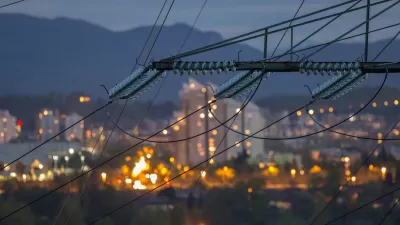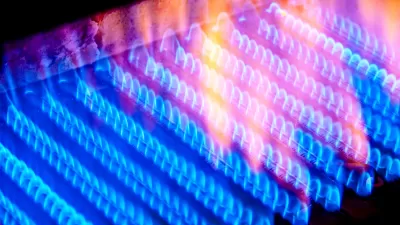As cities look to the Internet of Things to reimagine urban infrastructure, one hope is that real-time data collection will help increase energy efficiency at the regional level. Where do homes outfitted with a network of smart devices fit in?
VerdeXchange News recently interviewed Cole Hershkwoitz, co-founder of Los Angeles-based start-up Chai Energy, who maintains that "smart home" technologies can help connect regional energy providers to efficiency efforts at the residential level.
Chai Energy's app analyzes the energy consumption of a home, producing reports on everything from how many appliances are left on during the day to the financial feasibility of home solar power generation. Chai Pro, the premium product, is a small device that connects to a smart meter to calculate energy use on a second-by-second basis.
"We start with the customer—the problems they face and the life that they want to live," Hershkowitz tells VX News. "We then track that back to the user experience and eventually to their habits and behaviors… It’s about boiling energy data down into information that can help people make decisions and live more sustainably."
Yet the implications of residential communication with the grid surpass individual choices, or even household power bills. Companies like Chai are working to change the way utilities do business:
"We created Chai [in part] to help promote utility energy-efficiency and demand-response programs, and to actually get people to participate in them," Hershkowitz says.
Policy still has to catch up to that vision, and Hershkowitz is closely watching California legislation that he says will finally incentivize utilities to recognize home energy conservation driven by small lifestyle changes—the kind Chai encourages:
"I think policymakers are starting to understand that, especially in the residential space, energy efficiency is so much more about how we use and program the devices around us and a little less about large capital investments in more efficient appliances."
FULL STORY: Internet Of Things: Chai Energy's Connected-Home Technology A Win For Consumers

Maui's Vacation Rental Debate Turns Ugly
Verbal attacks, misinformation campaigns and fistfights plague a high-stakes debate to convert thousands of vacation rentals into long-term housing.

Planetizen Federal Action Tracker
A weekly monitor of how Trump’s orders and actions are impacting planners and planning in America.

San Francisco Suspends Traffic Calming Amidst Record Deaths
Citing “a challenging fiscal landscape,” the city will cease the program on the heels of 42 traffic deaths, including 24 pedestrians.

Defunct Pittsburgh Power Plant to Become Residential Tower
A decommissioned steam heat plant will be redeveloped into almost 100 affordable housing units.

Trump Prompts Restructuring of Transportation Research Board in “Unprecedented Overreach”
The TRB has eliminated more than half of its committees including those focused on climate, equity, and cities.

Amtrak Rolls Out New Orleans to Alabama “Mardi Gras” Train
The new service will operate morning and evening departures between Mobile and New Orleans.
Urban Design for Planners 1: Software Tools
This six-course series explores essential urban design concepts using open source software and equips planners with the tools they need to participate fully in the urban design process.
Planning for Universal Design
Learn the tools for implementing Universal Design in planning regulations.
Heyer Gruel & Associates PA
JM Goldson LLC
Custer County Colorado
City of Camden Redevelopment Agency
City of Astoria
Transportation Research & Education Center (TREC) at Portland State University
Jefferson Parish Government
Camden Redevelopment Agency
City of Claremont





























